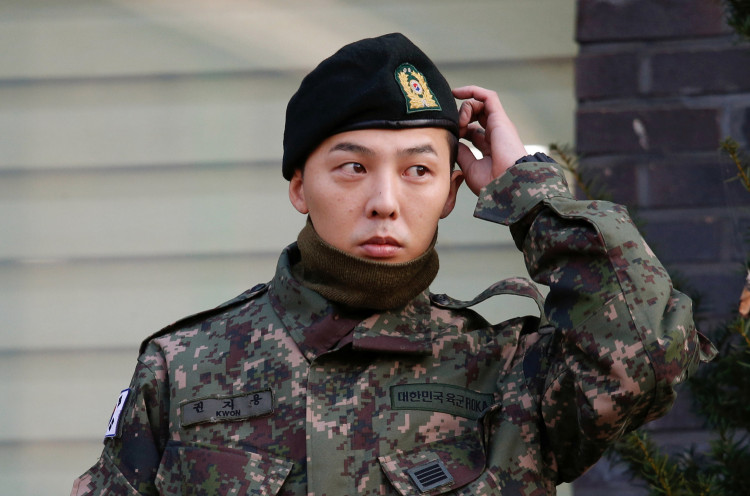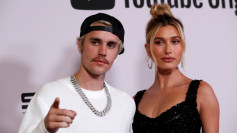The notion of South Korea as a 'drug-free nation' is a thing of the past. This year, 20,000 drug offenders have been apprehended in the country, with those in their teens and twenties surpassing 7,000, marking a 50% increase from the previous year. The entertainment industry, too, has been rocked by drug-related controversies. The revelation that actor Yoo Ah-in had administered 9.6 liters of propofol on 181 occasions shocked the public. The music industry has also been tarnished by drug issues, with many artists struggling to shake off their drug-related pasts or failing to return to their previous level of activity post-recovery. This is especially problematic for idol singers, who exert a significant influence on teens and young adults, making it a matter of social concern.
The Drug Scandal Trail Leads to YG Entertainment?
Most singers embroiled in drug scandals or attempting to return after drug-related charges this year have ironically been associated with YG Entertainment. B.I, a former member of the boy group iKON from YG Entertainment, was caught up in a drug scandal. Nam Tae-hyun, who debuted with the boy group WINNER through YG Entertainment, has also faced similar issues.
Even BIGBANG, a flagship group of YG Entertainment and pioneers of the second-generation boy groups, cannot escape scrutiny. Seungri faced expulsion from the entertainment industry due to the 'Burning Sun Gate' scandal, and T.O.P was charged with marijuana use. However, G-Dragon was recently cleared of drug accusations after being entangled in a drug controversy last month, following a police investigation.
Drug-Tainted Stars Return, But Opt for Overseas Activities
B.I was sentenced to three years in prison and four years of probation in September 2021 for using marijuana and LSD in 2016. He returned to the public eye in June this year, four years after the drug scandal, for the release of his album 'TO DIE FOR'. However, his comeback during his probation period drew public criticism. Recently, B.I has been focusing more on overseas activities, releasing the global EP 'Love or Loved Part.2' with English lyrics and completing a tour in 16 European cities, seemingly due to the negative public opinion in Korea.
Nam Tae-hyun has been actively expressing remorse among singers involved in drug scandals. Charged with methamphetamine use in August and December last year, this was his second offense after being granted a stay of prosecution for marijuana use last year. Nam Tae-hyun admitted all charges from his first trial. Unlike B.I, Nam Tae-hyun has suffered severe mental and physical damage, making it difficult for him to return to the music industry. He voluntarily checked into a drug addiction rehabilitation center in Incheon and is receiving treatment. Nam Tae-hyun has also appeared in current affairs and documentary programs like KBS1's 'Chase 60 Minutes' and Tving's original 'Future Ending', openly discussing the severity of drug addiction.
In particular, he attended the National Assembly audit in October as a reference person, emphasizing the need for a more comprehensive system for treating drug addicts. Nam Tae-hyun stated, "It's difficult to quit drugs on one's own. Merely treating addicts in hospitals is not enough. Rehabilitation treatment that accommodates addicts and provides round-the-clock care is crucial," requesting government support.
Many entertainers quietly return to the industry after a period of self-reflection following drug-related controversies. The participation of actor Choi Seung-hyun (T.O.P), a former member of BIGBANG, in the globally popular program 'Squid Game 2' remains contentious. Choi Seung-hyun was sentenced to ten months in prison and two years probation in 2017 for marijuana use while serving as a police officer. Following this incident, he completed his military service as a social service worker and announced his departure from BIGBANG. His appearance in a globally popular program after being convicted of drug use has drawn public criticism and anger. However, 'Squid Game' continues filming without Choi Seung-hyun's withdrawal.
G-Dragon was embroiled in the entertainment industry's drug gate that spiraled from actor Lee Sun-kyun since October last year. However, his approach to the drug controversy was completely different from the aforementioned offenders. Through his legal representative, he emphasized five times that he "did not do drugs," voluntarily appeared for police investigation last month, and was cleared of drug use following preliminary drug tests and detailed examinations. The police plan to dismiss the charges against G-Dragon, indicating that his name will likely be cleared.
How Should We View the Return of Entertainers with Drug Offenses?
Drug crimes by entertainers appearing on television can have a more negative impact on teens and young adults than drug crimes reported in the news. Therefore, there are calls to restrict the appearance of entertainers with drug offenses. Currently, each broadcasting company uses its internal regulations to review the appearance of entertainers with drug histories. Even those who have used drugs face no difficulty in appearing on shows if they have popularity and influence.
During this year's National Assembly audit, the need for a standard guideline to review the broadcast appearances of entertainers with drug offenses was highlighted. Kim Young-sik, a lawmaker from the People Power Party, pointed out, "The public is outraged that drug offenders take a brief period of reflection and then return to receive hefty appearance fees." In response, Lee Dong-kwan, chairman of the Broadcasting and Communications Commission, stated, "Currently, terrestrial broadcasters like KBS and MBC handle the issue of drug offenders' appearances through their internal regulations, but we will consider whether we can generalize this and implement it."
Many industry insiders believe that discussions and legislation regarding special military exemptions for entertainers involved in drug offenses have effectively ended. One insider commented, "While it's clear that the law shouldn't have been just for BTS, if it couldn't be applied to a representative figure like BTS, it's highly unlikely that such discussions will be revisited and legislation passed in the future."






